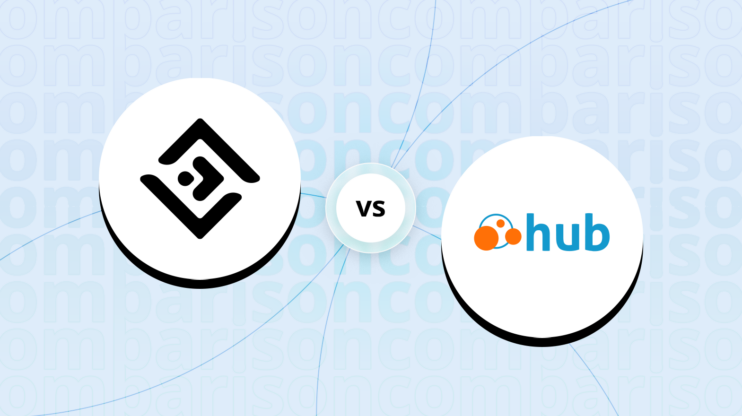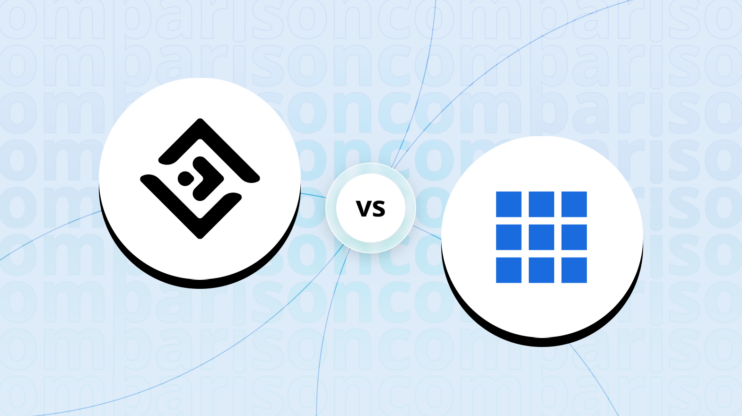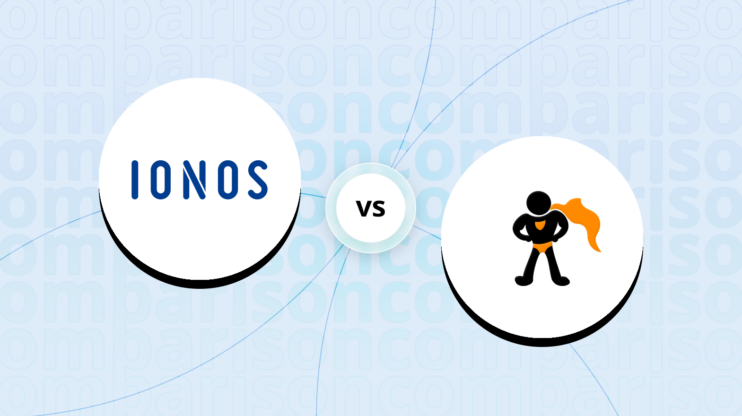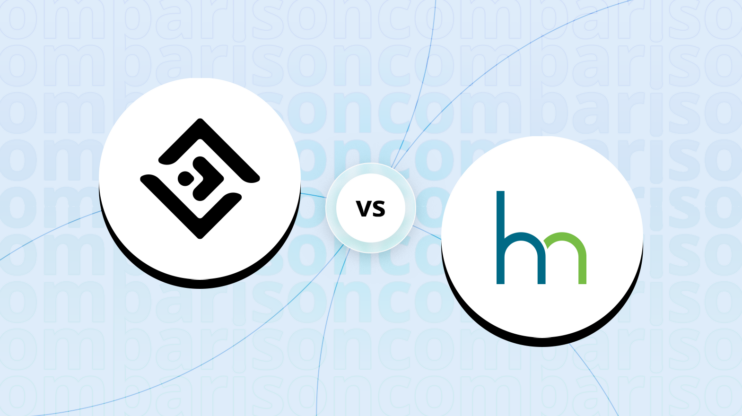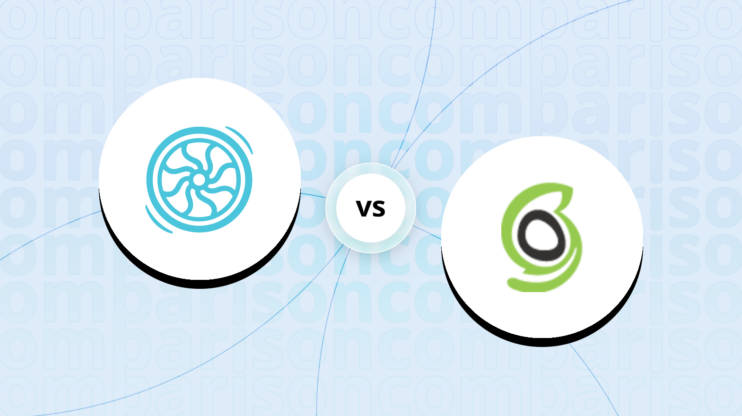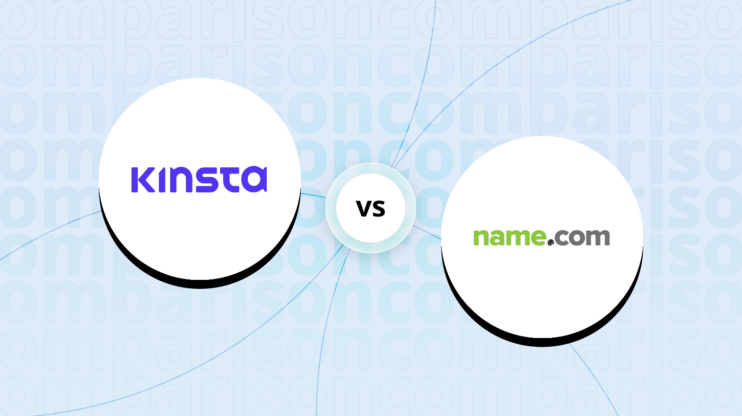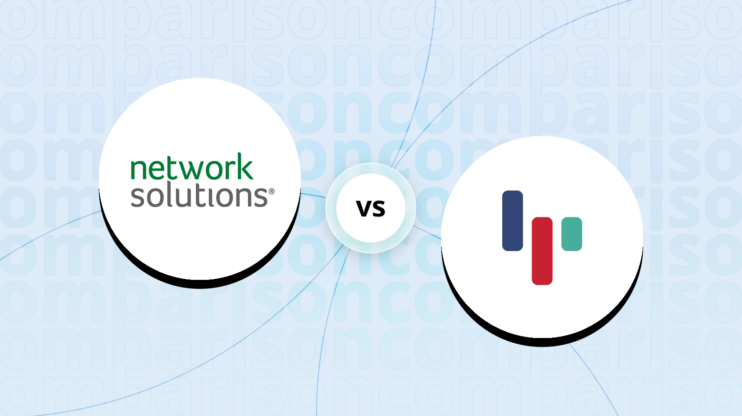Final verdict
Looking over Bluehost vs. Web Hosting Hub, it’s clear why both hosts are so popular. They have both hosted millions of
websites that run on WordPress for decades, building up a loyal customer base.
-
Bluehost (Overall grade: 8.2)
offers several impressive features, but also has some limitations, such as occasional outages and issues with customer support responsiveness, along with hidden fees and upselling tactics that could deter beginners. Additionally, there is a substantial price increase from one service level to the next. Despite these drawbacks, the platform’s excellent performance and reliability, bolstered by SSD storage and a built-in CDN for global content delivery, make it a suitable option for users seeking high performance and scalability.
Web Hosting Hub (Overall grade: 7.5)
offers many of the same features that Bluehost does, plus many more. If you’re looking for a web host that
will help you build a WordPress website with an easy-to-use website builder, features robust security features
and offers a 24/7 support team, Web Hosting Hub is the host you’ve been looking for.
 Overall grade:8.2 |
 Overall grade:7.5 |
|
|---|---|---|
| Uptime and Availability | 9.0 | 9.2 |
| Hosting Performance | 8.9 | 5.0 |
| Hosting Security | 8.1 | 8.0 |
| Price | 8.1 | 7.6 |
| Hosting Features | 7.0 | 6.9 |
| Ease Of Setup | 8.6 | 8.8 |
| User Management | 8.0 | 7.1 |
| Customer Support | 7.9 | 7.8 |
| User feedback | 3.5/5 | 4.5/5 |
Hosting types offered
Both platforms provide a variety of hosting types, each designed to meet the different needs of users.
 |
 |
|
|---|---|---|
| Shared hosting | ||
| Cloud hosting | ||
| WordPress hosting | ||
| Ecommerce hosting | ||
| VPS hosting | ||
| Dedicated hosting |
Although both offer a variety of hosting plans tailored to different needs, in
certain cases, one platform may prove to be more suitable.
Detailed comparison
Uptime and availability
Evaluates the average uptime statistics, uptime guarantee and overall availability of the hosting
provider
Score Components:
- Uptime percentage (30%): evaluates the uptime statistics in given period of time
- Uptime guarantee (20%): Assesses if the platform offers an uptime guarantee and
whether the actual uptime matches the promised guarantee. - General performance (25%): Evaluates how fast is the average response time and overall
it’s stability. - Responsiveness (10%): Adaptability to different devices and screen sizes.
- Availability (25%): Reflects the total downtime and number of outages.
 9.0
9.0
 9.2
9.2
Section 1:
🏆 Winner Web Hosting Hub: Leading in uptime and overall availability.
Section 2:
Bluehost demonstrates high reliability with several reviews noting near-perfect uptime. Its cloud hosting features an impressive 100% network uptime SLA, offering account credits for network downtimes. The service handles traffic well, with adequate server response times and performance metrics. While it had a slight drop in 2022, with 99.95% uptime, it consistently remains a dependable option.
Section 3:
Web Hosting Hub shines in both speed and uptime, attributed to their use of SSDs. Their hosting plans provide unlimited bandwidth and several performance tiers, ensuring smooth site operations. The free website transfer option guarantees no downtime during migration. The combination of pricing, guarantees, and performance features makes Web Hosting Hub a favorable choice for reliable hosting.
Hosting performance
Score Components:
- Hosting speed (30%): This includes SSD quality, Load times, PageSpeed score ranges,
additional information on website speed, built-in plugins for performance enhancement, available caching
methods, and CPU/RAM options - CDN (20%): Considers whether CDN is available or not, whether it’s free or paid, and
the quality of the CDN service - Available data centers (30%): Evaluates the number of data centers and their locations
globally. - Scalibility (20%): Looks at whether elastic scaling is available, the process required
to scale (manual upgrade vs. automatic scaling), the presence of dedicated servers, and the costs
associated with scaling.
 8.9
8.9
 5.0
5.0
🏆 Winner Bluehost: Offers top-tier performance with a focus on speed and uptime.
When comparing the general performance of Bluehost and Web Hosting Hub, it’s clear that Bluehost leads the way. Bluehost boasts world-class speed for WordPress sites, SSD storage for faster data retrieval, and a built-in CDN to optimize images and deliver edge server caching globally. Its optimized infrastructure enhances CPU frequency, aiding faster request processing. Additionally, Bluehost offers a network of global data centers to reduce latency. Web Hosting Hub, while giving a commendable performance, features more limited I/O speeds and entry processes across its plans and utilizes standard performance technology without mentioning a dedicated CDN or scalable CPU infrastructure.
Website Speed
Bluehost commits to providing perfect uptime and has built its hosting plans with features that support this claim. Its SSD storage is faster and more reliable than traditional hard drives. The built-in CDN further enhances loading times by distributing content more effectively across various global servers. Bluehost’s infrastructure, with scalable PHP workers, supports higher traffic loads efficiently. On the other hand, Web Hosting Hub offers decent speed improvements by doubling and quadrupling performance in higher-tier plans, but it lacks the same level of advanced features and infrastructure as Bluehost.
Scalability
Bluehost offers various scalable hosting options, including shared, VPS, dedicated, and cloud hosting. This range ensures users can upgrade their plans as their needs grow, with features like unmetered bandwidth and high-performance CPUs available. The scalability in Bluehost is flexible, providing solutions for any size of website. While Web Hosting Hub also provides good scalability with instant performance boosts in its higher plans, information about elastic scaling or auto-scaling isn’t mentioned. Both hosts require plan upgrades for enhanced resources, but Bluehost offers a richer variety of choices, including dedicated servers. Cost details for scaling beyond the mentioned plans are not specified for either service.
Hosting security
and regulatory requirements
Score Components:
- Technical security measures (40%): This includes encryption, firewalls, DDoS
protection, secure configurations, server monitoring, access control and availability of security addons
(e.g Sitelock security). - Operational security measures (30%): Encompasses data privacy, backups and data
redundancy. - Compliance and certifications (20%): Adherence to legal and regulatory requirements
(e.g., GDPR, HIPAA) and possession of certifications (e.g., ISO 27001, SOC 2). - Business and reliability (10%): Factors in the provider’s reputation, uptime
guarantees, and customer support.
 8.1
8.1
 8.0
8.0
🏆 Winner
Bluehost: Bluehost offers robust security features, including daily automated backups, DDoS protection, and 2-factor authentication.
Both Bluehost and Web Hosting Hub, have notable differences in their approaches to technical and operational
security, as well as in their compliance with regulations.
Technical security measures:
Bluehost and Web Hosting Hub both offer free SSL certificates and support for modern PHP versions. Bluehost’s free SSL is powered by Let’s Encrypt and also offers a premium SSL option with a $10,000 warranty by Comodo. Web Hosting Hub allows third-party SSLs and is compatible with PHP 7. Bluehost features automated daily backups and malware scanning through SiteLock, whereas Web Hosting Hub provides advanced policy firewall protection and supHP encryption to run PHP scripts securely. Bluehost also includes a Web Application Firewall and 2-factor authentication, features not specified for Web Hosting Hub.
Operational security measures:
Both hosting services emphasize secure operations but vary in specific features. Bluehost offers automated WordPress updates to keep installations secure, while Web Hosting Hub provides custom cron jobs for security audits and updates. Bluehost includes DDoS protection and daily automated backups via Jetpack. Web Hosting Hub features hotlink protection, password-protected directories, and IP blocking. Both offer email security measures: Bluehost with professional spam filters and anti-phishing tools, and Web Hosting Hub with 24/7/365 U.S.-based support.
Compliance and certifications:
Bluehost complies with GDPR regulations, protecting EU residents’ data rights and privacy, but does not support PCI compliance in its shared hosting plans. VPS and dedicated server customers can reach PCI compliance with Bluehost’s guidance. Web Hosting Hub’s data security and privacy measures are robust, but specific mentions of GDPR and PCI compliance are not provided. HIPAA compliance information is not specified for either provider.
 |
 |
|
|---|---|---|
SSL certificate |
Free SSL by Let’s Encrypt; Premium SSL |
Free SSL; Supports third-party SSLs |
Additional security features |
2FA, DDoS protection, automated backups |
Firewall protection, supHP, IP blocking |
PHP versions |
PHP Workers (vCPUs) |
PHP 7 |
GDPR compliance |
Yes |
Not specified |
HIPAA compliance |
Not specified |
Not specified |
PCI compliance |
Shared: No; VPS/Dedicated: Yes |
Not specified |
Hosting features
Score Components:
- Domains (20%): Assesses the availability of a free domain, domain purchase options, and
pricing - Email (15%): Considers if the provider offers full email hosting, or is reselling
third-party service, and if the email is only transactional or not - Website builder (15%): Checks if website builder is available, and it’s user
friendliness and overall the level of customization allowed. - Staging environment (20%): Determines if a staging environment is available, allowing
for testing changes before going live. - FTP & SFTP accounts (10%): Evaluates if and how easily users can access FTP and
SFTP accounts - Git and SSH access (20%): Assess whether Git is integrated into the hosting service and
if SSH access is provided
 7.0
7.0
 6.9
6.9
🏆 Winner
Bluehost: Ideal for a range of hosting needs with comprehensive features.
Both Bluehost and Web Hosting Hub offer versatile hosting solutions, but Bluehost shines with its broad array of services including shared, VPS, dedicated, and cloud hosting. For users seeking a user-friendly website builder, Bluehost’s free AI site creation and help tools are appealing, making it easy for users to build their websites efficiently. Additionally, Bluehost offers a free domain and SSL certificate for the first year, which provides added value for new users. The variety of plans, such as WooCommerce hosting for online stores equipped with advanced features like Jetpack Daily Backups and secure online payments, ensures that Bluehost can cater to both simple and complex hosting needs.
Web Hosting Hub, on the other hand, stands out for its affordability and performance enhancements. Offering free SSD drives that are up to 20 times faster, it ensures quick website loading times. Web Hosting Hub also provides a free website builder, BoldGrid, which is user-friendly and suitable for those who prefer drag-and-drop functionality. A significant benefit is unlimited storage and bandwidth across all plans, and unlimited email accounts, which can be appealing to users running multiple websites or those who require extensive database use. Plus, they offer a generous 90-day money-back guarantee and free website transfers, which could be crucial for users looking to switch providers without hassle.
 |
 |
|
|---|---|---|
Free domain |
Yes, for the first year |
Yes, for the first year |
Free SSL |
Yes, for the first year |
Yes |
Email hosting |
Via Google Workspace |
Yes |
Website builder |
Yes, AI site creation |
Yes, BoldGrid |
Staging environment |
Not mentioned |
Not mentioned |
FTP & SFTP accounts |
Likely (cPanel available) |
Yes |
Git and SSH access |
Mentioned |
Yes |
Free backup |
Yes, for the first year |
Yes, 24-hour backup for $1/month |
Money back guarantee |
Yes |
Yes, 90 days |
a location.
As a result in rare cases the features mentioned here can differ from the ones you see on their websites.
Both providers support a range of users from beginners to experts with user-friendly website builders and WordPress staging areas. However, in terms of developer tools, both Bluehost and Web Hosting Hub offer robust options including SSH access, support for multiple programming languages, and Git for version control, thus appealing to developers looking for advanced capabilities.
Email services:
Bluehost provides professional email hosting through Google Workspace, allowing users to set up and manage their email seamlessly. This could be ideal for businesses looking to integrate with Google’s suite of tools. Web Hosting Hub offers unlimited email accounts and advanced email features like SPAM safe protection and the capability for email forwarding. This is beneficial for users needing flexible and secure email hosting directly through their hosting provider.
Price
Score Components:
- Plan value (40%): What each pricing tier offers.
- Transparency and clarity (30%): Clearness of pricing structures.
- Flexibility of plans (20%): Range of options to suit different budgets.
- Hidden costs (10%): Additional expenses not included in the plan.
 8.1
8.1
 7.6
7.6
🏆 Winner [Bluehost]: Known for its versatile hosting plans, affordable pricing, and extensive features.
Evaluating the pricing of plans among various hosting providers can be complex due to their differing pricing and renewal strategies. Additionally, certain plans require annual commitments, which adds to the difficulty of making comparisons. The prices listed are based on monthly commitments; plans requiring annual commitments are indicated. Although some providers offer identical plans for WooCommerce and shared hosting, we have created separate tables for each to enhance clarity.
When comparing the hosting plans of Bluehost and Web Hosting Hub, Bluehost offers a variety of hosting types including Shared, VPS, Dedicated, Cloud, and WooCommerce hosting with numerous options at competitive prices. Web Hosting Hub has simpler plan structures with three main offerings: Spark, Nitro, and Dynamo. While Web Hosting Hub’s pricing starts slightly higher than Bluehost, their plans include unlimited features early on. Bluehost’s plans come packed with multiple free offerings like AI tools, free domains, and enhanced security features for the first year, adding more value to their offerings while maintaining lower initial price points.
 |
 |
|---|---|
|
Basic Hosting $10.99
1 website, 10 GB SSD storage, unmetered bandwidth, chat support, free CDN, free domain 1st year, free SSL 1st year, AI tools, daily website backups (free 1st year), domain privacy 1st year, malware scanning. Value for price:7.8/10
|
Spark Plan $11.99
2 websites, unlimited SSD storage, unlimited bandwidth, live chat support, free domain, free SSL, 10 MySQL & PostgreSQL databases, $150 advertising credits, backups ($1/mo), automated WordPress, 1-click applications, 90-day money-back guarantee. Value for price:7.5/10
|
|
Plus $14.99
Unlimited websites, unmetered SSD storage, unmetered bandwidth, chat support, free CDN, free domain 1st year, free SSL 1st year, AI tools, daily website backups (free 1st year), domain privacy 1st year, malware scanning. Value for price:8.0/10
|
Nitro Plan $15.49
Unlimited websites, unlimited SSD storage, unlimited bandwidth, live chat & phone support, free domain, free SSL, unlimited MySQL & PostgreSQL databases, $150 advertising credits, backups ($1/mo), automated WordPress, 1-click applications, 90-day money-back guarantee. Value for price:7.8/10
|
|
Choice Plus $18.99
Unlimited websites, unmetered SSD storage, unmetered bandwidth, chat support, free CDN, free domain 1st year, free SSL 1st year, AI tools, daily website backups (free 1st year), domain privacy 1st year, malware scanning. Value for price:8.2/10
|
Dynamo Plan $20.49
Unlimited websites, unlimited SSD storage, unlimited bandwidth, live chat & phone support, free domain, free SSL, unlimited MySQL & PostgreSQL databases, $150 advertising credits, backups ($1/mo), automated WordPress, 1-click applications, 90-day money-back guarantee. Value for price:8.0/10
|
 |
 |
|---|---|
|
Basic Hosting $10.99
1 website, 10 GB SSD storage, unmetered bandwidth, chat support, free CDN, free domain 1st year, free SSL 1st year, AI tools, daily website backups (free 1st year), domain privacy 1st year, malware scanning. Value for price:7.8/10
|
Spark Plan $11.99
2 websites, unlimited SSD storage, unlimited bandwidth, live chat support, free domain, free SSL, 10 MySQL & PostgreSQL databases, $150 advertising credits, backups ($1/mo), auto-installed WordPress, 1-click applications, 90-day money-back guarantee. Value for price:7.5/10
|
|
Plus $14.99
Unlimited websites, unmetered SSD storage, unmetered bandwidth, chat support, free CDN, free domain 1st year, free SSL 1st year, AI tools, daily website backups (free 1st year), domain privacy 1st year, malware scanning. Value for price:8.0/10
|
Nitro Plan $15.49
Unlimited websites, unlimited SSD storage, unlimited bandwidth, live chat & phone support, free domain, free SSL, unlimited MySQL & PostgreSQL databases, $150 advertising credits, backups ($1/mo), auto-installed WordPress, 1-click applications, 90-day money-back guarantee. Value for price:7.8/10
|
|
Choice Plus $18.99
Unlimited websites, unmetered SSD storage, unmetered bandwidth, chat support, free CDN, free domain 1st year, free SSL 1st year, AI tools, daily website backups (free 1st year), domain privacy 1st year, malware scanning. Value for price:8.2/10
|
Dynamo Plan $20.49
Unlimited websites, unlimited SSD storage, unlimited bandwidth, live chat & phone support, free domain, free SSL, unlimited MySQL & PostgreSQL databases, $150 advertising credits, backups ($1/mo), auto-installed WordPress, 1-click applications, 90-day money-back guarantee. Value for price:8.0/10
|
|
Pro $28.99
Unlimited websites, unmetered SSD storage, unmetered bandwidth, chat support, free CDN, free domain 1st year, free SSL 1st year, AI tools, daily website backups (free 1st year), domain privacy 1st year, malware scanning, optimized for high traffic. Value for price:8.4/10
|
N/A |
 |
 |
|---|---|
|
Cloud 1 $79.99
1 website, 10 GB SSD storage, unmetered bandwidth, voice chat support, 2 vCPU compute power, 100% network uptime. Value for price:7.0/10
|
N/A |
|
Cloud 10 $109.99
10 websites, 125 GB SSD storage, unmetered bandwidth, voice chat support, 20 vCPU compute power, 100% network uptime. Value for price:7.5/10
|
N/A |
|
Cloud 25 $169.99
25 websites, 175 GB SSD storage, unmetered bandwidth, voice chat support, 75 vCPU compute power, 100% network uptime. Value for price:8.0/10
|
N/A |
|
Cloud 50 $249.99
50 websites, 225 GB SSD storage, unmetered bandwidth, voice chat support, 150 vCPU compute power, 100% network uptime. Value for price:8.5/10
|
N/A |
Enterprise plans
For enterprises, Bluehost offers Dedicated Hosting plans starting at $119.99 per month with options that cater to higher traffic and more demanding environments with enhanced security, storage, and support. On the other hand, Web Hosting Hub does not specifically categorize plans for enterprise-grade hosting but offers high-end shared hosting plans with unlimited resources that cater well to small to medium businesses. Bluehost provides a wider range of dedicated resources and features suited to larger enterprises needing robust and scalable infrastructure.
Ease of setup
platform.
Score Components:
- Site migration (25%): Assesses whether the provider offers tools for site migration,
either automated or manual, and whether these services are free or require a fee. - Admin panel usability (35%): Evaluates the type of admin panel provided, such as the
standard cPanel or a custom solution, focusing on its accessibility and user-friendliness for both
technical and non-technical users. - Setup features (20%): Examines the availability and ease of use of various setup
features, including FTP accounts, file managers, email account setup, PHPMyAdmin, and easy CDN
configuration. - Help center quality (20%): Measures the quality and accessibility of the provider’s
help center resources, including articles and tutorials.
 8.6
8.6
 8.8
8.8
🏆 Winner: Web Hosting Hub: Offering beginner-friendly setup tools and extensive support options.
Both Bluehost and Web Hosting Hub provide user-friendly admin panels with a wide array of features. Bluehost employs a custom cPanel which integrates with their unique WonderSuite tools, enhancing usability for both technical and non-technical users. This custom cPanel includes features tailored for easy WordPress management, making it simpler for users to navigate site settings and configurations. Web Hosting Hub, on the other hand, also uses the standard cPanel but pairs it with their BoldGrid website builder. This combination offers a straightforward interface, allowing users to easily build and manage websites even with limited technical knowledge. While both providers offer intuitive admin panels, Web Hosting Hub slightly edges out due to its additional user-friendly tools integrated within the cPanel environment.
When analyzing the migration tools offered by both providers, Web Hosting Hub and Bluehost deliver effective solutions to ease the transition. Bluehost provides automatic WordPress installations and a guided setup process, making initial site setup and migration straightforward, though specific migration services might incur additional fees. Web Hosting Hub offers an automated 1-Click Installer via Softaculous, which includes support for a wide range of applications such as WordPress, Joomla!, and Drupal. Additionally, the option to pre-install WordPress or PrestaShop during the checkout process simplifies migration tasks without extra charges, rendering it a cost-effective solution for site migration.
Both hosting providers excel in their help center resources and accessibility. Bluehost’s knowledge base is extensive and includes guides, articles, and 24/7 expert support through chat, phone, and email, aiding users with various hosting-related issues. Web Hosting Hub similarly offers a comprehensive Help Center with articles, tutorials, a community Q&A, and support available via live chat and phone 24/7/365. For quick access to their vast resources, you can visit their help centers:
User management
accessibility.
Score Components:
- Role customization (40%): Flexibility in creating and defining user roles and
permissions. - Ease of management (30%): User interface and tools for managing users.
- Access control (20%): Effectiveness of access control measures for different user
levels. - Scalability (10%): Ability to manage a growing number of users efficiently.
 8.0
8.0
 7.1
7.1
🏆 Winner
Bluehost: Offers structured user roles and comprehensive management features.
Bluehost exhibits greater flexibility in creating and defining user roles and permissions compared to Web Hosting Hub. It presents a tiered system of user roles such as Primary Contact, Admin Contact, and Tech Contact, each with distinct responsibilities and extensive permissions. The structured approach allows the Primary Contact to be the central figure for account control while delegating specific tasks to Admin and Tech Contacts. Web Hosting Hub, on the other hand, lacks this defined hierarchy and primarily focuses on functionalities like email management, security, FTP accounts, database management, and SSH access. While these features are beneficial, they do not offer the same granularity and user role customization as Bluehost.
Both platforms provide user-friendly interfaces for managing users, but Bluehost’s dedicated User Roles & Permissions page simplifies role management. Its process of adding administrative or technical users involves straightforward steps, making it easy to assign and modify user roles. Web Hosting Hub utilizes cPanel for managing various functionalities, which is a familiar interface for many users but lacks a dedicated user role management feature. Bluehost’s specialized tools for managing users make it more intuitive for those looking to handle multiple user permissions seamlessly.
When assessing access control measures, Bluehost stands out with its explicit role-based permissions. The platform allows for comprehensive control over who can edit account information, manage payments, and handle domain settings. This granularity makes it easier to manage a growing number of users efficiently. Web Hosting Hub provides access control through features like password-protected directories and SSH access but lacks the role-specific permissions seen in Bluehost. Hence, Bluehost is better suited for environments where detailed user management is critical.
Bluehost user roles table:
| Role | Description | Access highlights |
|---|---|---|
| Primary Contact | Unique role, main point of communication | Edit account details, manage payments, add/delete roles, purchase products, manage services, edit domains’ WHOIS information |
| Admin Contact | Manages settings and permissions for other users | Edit account payment information, add/delete roles, purchase products, manage services, edit domains’ WHOIS information |
| Tech Contact | Focused on technical management | Manage products, renew services, edit domains’ WHOIS information |
Customer support
hosting provider.
Score Components:
- Support communication channels (30%): Measures the variety of customer support types
provided (live chat, chatbot, email, phone, etc.) - Availability (20%): Assesses the availability hours for each channel, including 24/7
support options. - Technical support quality (30%): Assesses whether the provider offers comprehensive
technical support, including hardware upgrades (e.g., HDD to SSD), software installations, and web
server configuration changes. - Enterprise support (20%): Checks if there are dedicated or priority support services
for enterprise-level customers.
 7.9
7.9
 7.8
7.8
🏆 Winner
Bluehost: Offers a wider range of customer support options with 24/7 live chat and root access for advanced users.
 |
 |
|
|---|---|---|
Phone support |
||
Live chat support |
||
Chatbot |
||
Email/ticket support |
||
Enterprise support (dedicated agent, priority support) |

Bluehost and Web Hosting Hub both offer 24/7 customer support, but their services differ in several ways. Bluehost provides chat and phone support for general inquiries, with designated hours for account verification, renewals, and cancellations. Technical assistance is available from 7 a.m. to midnight EST, via phone or a Help Ticket for email support. They have separate contact numbers for US and international customers. However, some users have reported issues such as slow response times and communication difficulties, often attributed to outsourcing.

On the other hand, Web Hosting Hub also offers round-the-clock support via live chat, phone, and tickets, with a notable emphasis on providing comprehensive tech support across all plans. On higher-tier plans, Web Hosting Hub offers advanced technical support, assisting with significant hosting changes like server configurations and software installations. While Web Hosting Hub generally receives positive feedback, some complaints highlight longer wait times for resolving complex issues, a challenge common in the hosting industry.
User feedback
User feedback on Bluehost as a hosting provider is highly mixed. On the positive side, many users commend their affordable pricing, ease of use with WordPress integration, and the comprehensive range of features such as free domain names, SSL, and excellent customer support. However, numerous reviews criticize the service for frequent outages, technical support issues, hidden fees, and unreliable performance, which have significantly impacted users’ businesses. Additionally, complaints about complicated navigation, aggressive upselling, and a steep learning curve for first-time users are common. While some users find Bluehost reliable and cost-effective, others have had severely negative experiences, citing problems like non-functional websites, billing issues, and inadequate customer service.
Users consistently praise the hosting provider for its easy-to-use interface, robust hosting tools, and extensive features, making it particularly suitable for WordPress implementation. Customer support is often highlighted as responsive and helpful, contributing to an overall positive experience. However, some criticisms include occasional connectivity issues, a somewhat technical and overwhelming interface, and slightly higher costs for certain services like SSL for shared hosting. Despite these minor drawbacks, many users find the service affordable and reliable, offering good value for their needs.
FAQ
Which platform is better suited for hosting WordPress websites?
Both Bluehost and Web Hosting Hub are well-suited for hosting WordPress websites, offering specialized plans and features optimized for WordPress. Bluehost provides additional focused tools like WooCommerce hosting for eCommerce sites and integrates seamlessly with WordPress through their free AI site creation tools. Web Hosting Hub also includes a user-friendly website builder, BoldGrid, which works excellently with WordPress, making either platform a viable option.
Are both platforms suitable for beginners?
Yes, both Bluehost and Web Hosting Hub are suitable for beginners. Bluehost offers a custom cPanel with WonderSuite tools, making site management intuitive, and provides various user-friendly features, including AI site creation tools. Web Hosting Hub includes the BoldGrid website builder, which is tailored for ease of use with drag-and-drop functionality, and offers a straightforward setup with automated WordPress installations.
Which hosting service offers better security features?
Bluehost provides more comprehensive security features compared to Web Hosting Hub. It includes daily automated backups, DDoS protection, 2-factor authentication, and malware scanning through SiteLock, and a Web Application Firewall. Web Hosting Hub offers free SSL certificates, advanced firewall protection, supHP encryption, and IP blocking but lacks some of the additional security measures like 2-factor authentication found in Bluehost.
Which hosting service offers more scalability options for growing websites?
Bluehost offers a greater range of scalability options compared to Web Hosting Hub, with various types of hosting such as shared, VPS, dedicated, and cloud hosting. This variety ensures users can upgrade their plans smoothly as their needs grow. While Web Hosting Hub provides scalability through higher performance tiers and unlimited features in its plans, it lacks the extensive hosting types and scalable CPU infrastructure found in Bluehost.
Which platform offers better customer support?
Bluehost and Web Hosting Hub both provide extensive customer support but in different formats. Bluehost offers 24/7 live chat and phone support but has mixed reviews on responsiveness. Web Hosting Hub includes phone, live chat, email/ticket support, and a help desk system, but Bluehost’s focus on immediate live interactions gives it a slight edge in providing prompt support. However, Web Hosting Hub’s broader range of communication channels offers a competitive customer support experience.
What are the major differences in pricing and value between Bluehost and Web Hosting Hub?
Bluehost and Web Hosting Hub differ in their pricing structures and the value they offer. Bluehost provides a variety of hosting plans at competitive prices, including multiple free offerings like AI tools and enhanced security features for the first year. In contrast, Web Hosting Hub offers simpler plan structures with unlimited features starting early on but at slightly higher initial prices. However, Bluehost’s diverse plan options and additional free features for new users generally add more value for cost.
The making of this blog
We followed a clear, step-by-step process to write and research this article.









